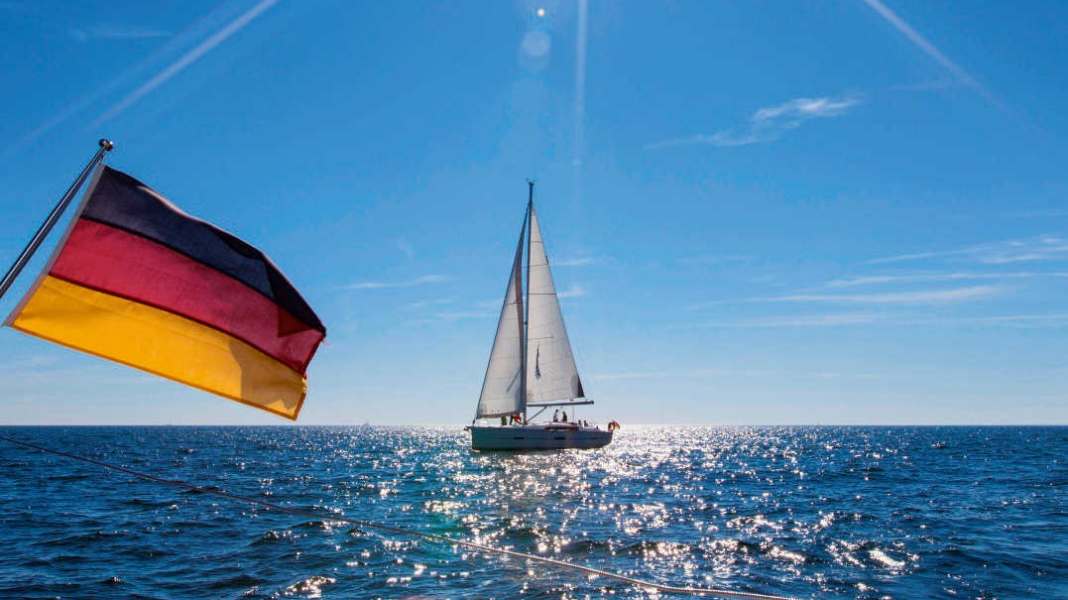
The introduction of a private asset register, which could also have far-reaching consequences for yacht owners, has been the subject of intense debate in the European Union for some time now. The introduction has now been decided. However, the details of implementation in the EU member states are still unclear.
A change in the law is also causing concern in Germany. An amendment to the Equalisation of Burdens Act came into effect on 1 January 2024. This law was created after the Second World War. It aimed to promote social justice by redistributing wealth. Those who had suffered considerable losses during the war received financial support from those who had remained relatively unaffected by the consequences of the war. The law was intended to help reduce the social and economic inequalities created by the war.
In simple terms, the amendment as of 1 January 2024 will make it possible to redistribute the population's assets on the basis of the Equalisation of Burdens Act in the event of other crises. The original purpose of the law will be expanded; in future, it will no longer only compensate for the consequences of war.
Against the background of the planned list of assets and the extended Equalisation of Burdens Act, the question arises as to the cases in which a redistribution of private assets will be legitimate.
Also interesting:
The planned private asset register in the EU
The idea behind the planned private asset register is to create comprehensive transparency regarding the assets of private individuals. According to the draft resolution, this should not only facilitate the fight against money laundering and tax evasion, but also serve to ensure a fair equalisation of burdens between EU member states. In the area of yacht owners, among others, the EU appears to be looking for a way to access assets such as luxury goods.
The German law change
The amendment to the Equalisation of Burdens Act of 1952, which was passed on 12 December 2019, is a cause for concern - an amendment that is difficult to recognise as such at first glance. The amendment was made in Article 21 of the Act on the Regulation of Social Compensation Law (SozERG), to which the Equalisation of Burdens Act refers linguistically: There, the word "war victims' welfare" was replaced by "social compensation". The amendment came into force on 1 January 2024.
But why this change? Can the costs of the pandemic or climate policy be claimed under the heading of "war victims' welfare" as equalisation of burdens within the meaning of the Equalisation of Burdens Act? Not so far. The change in terminology to "social compensation" could indicate that the government is considering claiming these and other costs as part of equalisation of burdens from 2024. This is because the amendment to the SozERG would provide a completely new basis for this from 2024. This could mean a hidden danger for property owners. It is still unclear whether such a burden equalisation will actually take place and what form it might take. However, consumers should follow the discussion closely in order to recognise possible financial consequences and prevent losses.
Effects on yacht owners
The planned change to the law and the introduction of the private asset register could have a significant impact on yacht owners. On the one hand, they would have to expect a higher bureaucratic burden, as detailed information about their yachts would have to be disclosed. Secondly, transparency could lead to yachts being taxed in the future. Furthermore, the introduction of the private asset register could have an impact on the market for luxury goods such as yachts. Potential buyers could possibly hold back due to the prospect of comprehensive disclosure of their financial circumstances.
Escape to foreign registers
In view of the impending entry in the private asset register and the extended equalisation of burdens regulation, numerous yacht owners have already reacted. Many are deciding to delete their yachts from German registers and consider alternative registration options.
This flight into foreign waters not only represents an act of protection against possible financial burdens, but also means far-reaching tax consequences for the owners.
Liechtenstein and San Marino are particularly interesting options. Liechtenstein offers a stable legal basis and reliable administration for yacht registrations. At the same time, San Marino scores with its position outside the EU and can offer yacht owners an attractive alternative.
Outlook and conclusion
The private asset register adopted by the European Union and the amendment to the German Equalisation of Burdens Act, which has been in force since the beginning of the year, has sparked a lively public debate and opened up many opportunities for politicians. Yacht owners should follow the developments closely and inform themselves about the potential effects at an early stage.
However, we strongly advise against a hasty escape by flying the flag. Quite the opposite - our world is changing and we are experiencing turbulent times. And just because problems are looming on the horizon, it is not advisable to move into waters where we can neither assess the current weather situation nor predict the coming storms.
Although burden equalisation could be on the horizon in Europe, those who see it coming can react in good time. The flight of flags to other European countries is associated with incalculable risks for most owners. Only specialised law firms can develop secure and customised legal constructions for high fees that protect against state access. So be informed and keep an eye on the weather conditions, but continue to sail with joy and passion (for the time being) under the German flag.

Benyamin Tanis The yachtsman and lawyer from Kiel has been advising and representing his clients for many years with a team of several lawyers, boat and shipbuilders and a Europe-wide network of partner law firms in all legal matters relating to yachting, from boat purchases to tax and customs matters to the settlement of claims.

